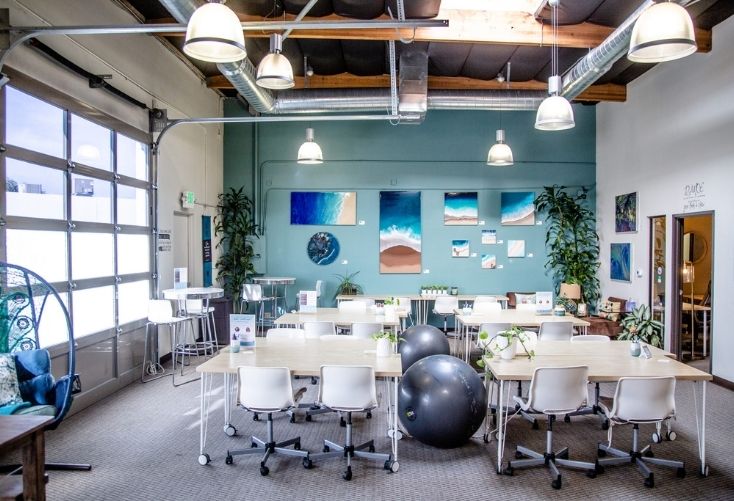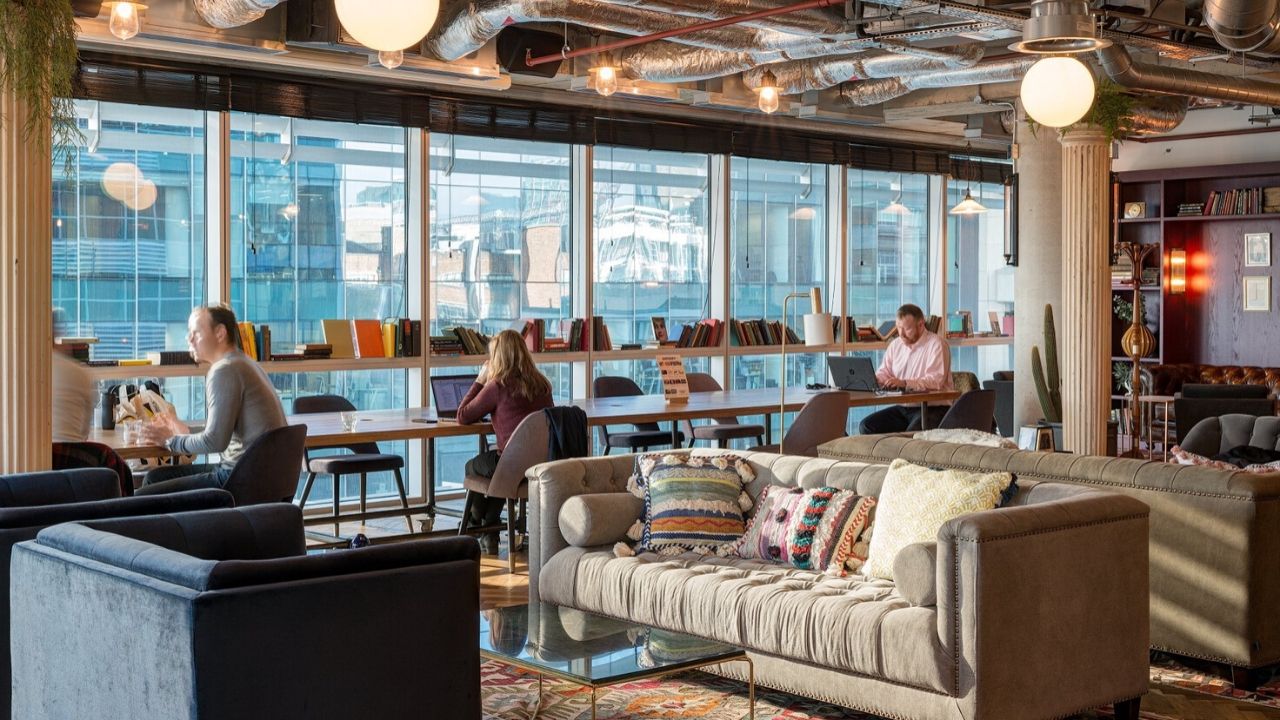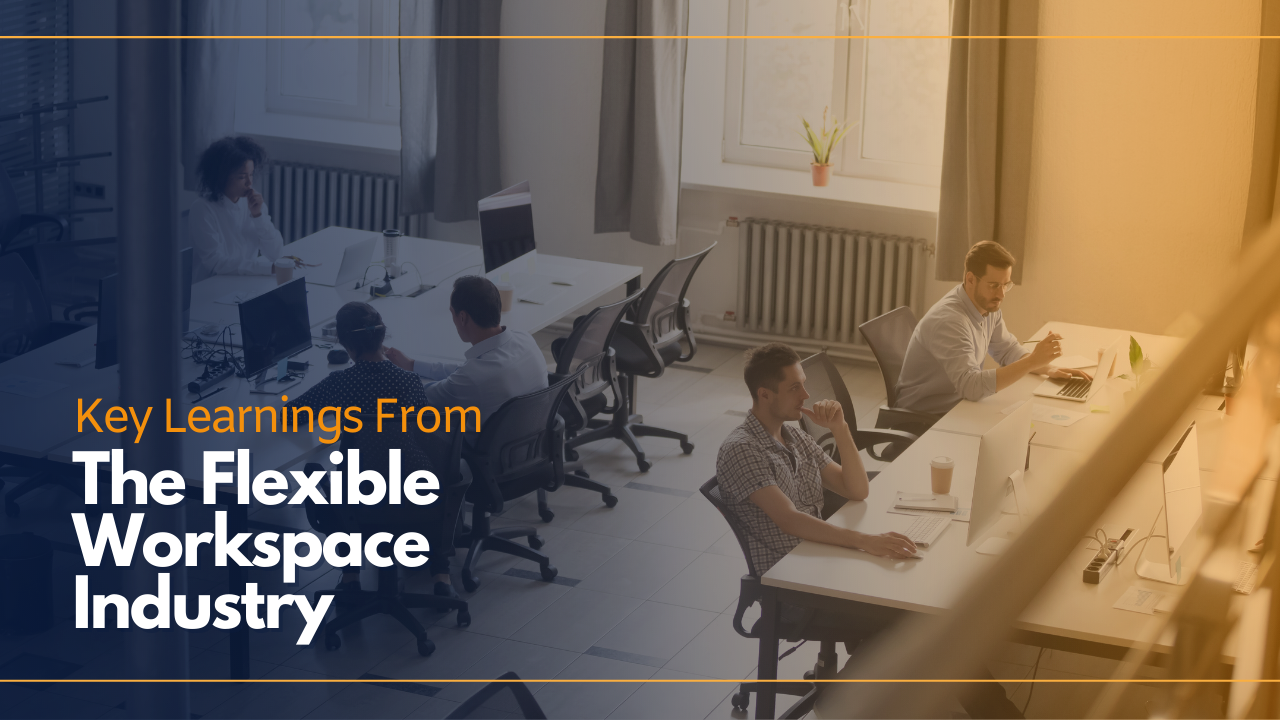- Key learnings and insights from Hera Hub’s Felena Hanson and Dan Zakai from Mindspace.
- Both Hanson and Zakai share how they adapted their business model during the pandemic.
- This is the fifth in a series of interviews by Robert Kropp, exploring the experiences of flexible space owners during the past year.
With challenges and lockdowns continuing into February 2021 all around the world, I continue to dive into key learnings, pivots, and opportunities from the last year and what is expected for the industry in the future.
With the 5th part in this series, I focus on operators, industry leaders, and organizations with different circumstances, locations, and business models throughout the flexible space industry.
If you missed the other four articles in the series, check them out:
- Part 1 with GOOD SPACE, CoworkLand, VR Coworking powered by weXelwirken, SaltLabs
- Part 2 with OneCowork, Venture X, Creative Works
- Part 3 with Impact Hub, Work.Life, Spacemade
- Part 4 with Use.Space, Venture X, Cobalance Café
In this article, I have discussions with the founder of Hera Hub and the CEO of Mindspace.
TLDR Highlights:
- Virtual Offerings Must Provide Tremendous Value
- Can’t Rush the Return to the Office
- Communicate Often
- The Role of Workspaces in a Member’s Success
- The Need for New Membership Models
- Correlation of the Health Impact of Coronavirus & Business
- People Prefer to Return to an Office
- Enterprises Bringing New Demand and Requirements
- New Industries Using Flex
- Hybrid Work Schedules are Changing Offerings
Here is what we learned and what’s next:
Hera Hub in Multiple Locations, United States

It was wonderful to be able to connect with Felena Hanson, the founder of Hera Hub. Hera Hub, with 6 locations around the United States, is described as “a coworking space and business accelerator where entrepreneurial women can create and collaborate in a professional, productive, spa-like environment.”
As part of their services and brand promise, they focus on “providing members with connections to other business experts, access to educational workshops, and visibility within the community.”
Like many others, 2019 was a year of growth throughout much of the flexible workspace industry. However, once the pandemic hit in 2020, Felena and team knew that they needed to quickly pivot many of their normal interactions and programs online in order to better support their members.
Key Learning During and Post Lockdown: Any events, whether in person or online needs to bring a tremendous amount of value. People might show up if you ask them to. But keeping someone engaged and actively participating requires listening to what people want and need, and then delivering a great experience.
By focusing on providing as much value as possible online and virtually, Hera Hub was able to retain about 80% of their members. At the same time, meeting rooms and other booking revenues decreased significantly.
After about 6 weeks from the initial lockdowns, members started coming back into the locations. This gradually increased throughout the year.
Key Learning: The return to the office can’t be rushed by an operator. Hera Hub focused on demonstrating that they were taking all the necessary precautions for a safe space such as limiting capacity and increasing the frequency of cleanings. However, as they learned, members only returned when they were ready.
As part of the move virtually, the team at Hera Hub also found that communicating often with members was critical.
Key Learning Post Lockdown: Use your already engaged platforms to communicate with members frequently. Hera Hub used a private Facebook group to consistently keep their members connected and aware of their daily events. If they didn’t hear from someone, then they would use a simple email or phone call to reach out.
Key Learning Post Lockdown: Although some members decided to continue working from home throughout much of 2020, they maintained their membership to have a ‘sanctuary’ for themselves when they needed it. Whether it was for peace and quiet, adult conversations, or just a place away from some of the busyness of home and life, the value of maintaining a membership was present for many.
Key Learning from Members: Hera Hub and many operators globally have needed to shift focus and pivot in many ways over the past year. The same can be said for the many businesses and members of these spaces.
Member Pivot: During 2020, co-founders Kacie Bluhm and Lisa Callaghan with the support of their community of women entrepreneurs at the Hera Hub, rapidly pivoted their event planning business, The Sweet Kindred (TSK). After the lockdowns started, Kacie and Lisa learned that many small businesses were challenged by their lack of online presence while in-person restrictions forced many entrepreneurs to market and sell online, some for the very first time. What resulted was a new service, The SK Creative, which was launched to solve these challenges. The SK Creative has since grown to become the corporate branch of TSK, with the business taking on new clients and hosting workshops.
Kacie and Lisa demonstrated a tremendous amount of resilience during this transition in order to find an opportunity throughout all of the difficulties of 2020.
At the same time, what role does a workspace have in support of businesses and entrepreneurs as they need to pivot, evolve, and grow?
Key Learning from Members: First off, keeping members engaged and connected can make a significant difference for personal and professional development. In addition, by providing educational programming, networking events, business experts and mentors, a business accelerator, etc, a workspace helps to not only provide advice and support for members during the good but also the challenging times. In the end, it is up to the members to deliver on the goals of their role or business, however, the odds of success change with what a workspace can bring its members.
Depending on the speed of the vaccine efforts in 2021, Felena believes that the space will also see a big pop in members coming back to the office. However, the timing of that is difficult to say. For now, they are staying lean and focused on new opportunities.
Future: Felena plans to launch at least a few more locations during 2021 along with the expansion of the Hera Hub licensing model.
Future: Although they never anticipated having one, there was significant demand from people wanting another way of joining Hera Hub without using the physical space. As a result, they launched a virtual membership focused on connecting entrepreneurs for daily education, mentoring, and accountability.
Mindspace in Multiple Locations throughout US, Europe, and Israel

I also had the pleasure to get the perspective of Mindspace’s CEO Dan Zakai. Mindspace is a boutique flex space provider with over 30 locations throughout the US, Europe, and Israel.
Throughout 2020, Dan stated that “in each country where we’re located, we’ve seen a strong correlation between the health impact of the virus and the impact on our business. For example, the initial recoveries in countries such as Israel and Germany were much faster than the UK and US, and their subsequent lockdowns have been less severe. We’ve seen members returning in Germany and Israel for the most part.”
Key Learning Post Lockdown: Dan continued saying that, “despite the second wave of lockdowns, we see consumers generally preferring to come back to work from the office in order to change their environment, increase productivity and improve teamwork.”
To help ensure members that all precautions are being taken at each location, Mindspace is also part of two industry initiatives: WORC – the global council of workplace operators, and Safe Spaces. In addition, they have implemented new health and safety standards such as ensuring tenants continue to social distance, spacing out furniture in communal areas, and regular cleaning of bathrooms.
By the end of 2020, Mindspace was already experiencing a significant increase in demand especially in markets that have seen reductions in the health impacts from the virus. They reported an 83% rise in the number of Israel deals, compared to the same period last year, along with growth in demand of hybrid solutions.
Much of this increase in demand was due to interest from enterprises for a variety of reasons. Here are a few:
- Flexibility (Easy to scale up or down and accommodate different team sizes, as well as to provide casual, no-commitment use of daily passes)
- Viable exit strategy (Starting with monthly contracts)
- Ability to de-risk (“Enterprises can take an amount of space for 6-9 months as employees start to come back and then can scale up. Many office buildings are operating nowhere near at capacity now and enterprises are realizing the huge waste in overheads.”)
- “Flex provides transparent, highly predictable operational / maintenance costs on a monthly basis over a 2-5 year period. This can be preferable for shareholders in uncertain times, especially over cap ex investment and ongoing, unforeseen operational costs.”
- Operator’s ability to reflect individual brand identities of an organization
Key Learning: “Historically, large technology companies were the first vertical to come to flex”, however, media, financial companies, cyber security, back-of-office / outsourcing companies and even aviation are also becoming more open to flex.
Key Learning Post Lockdowns and Future: Hybrid work schedules are becoming more common with new requirements and flexibility needs for the operator fulfill.
Some examples of hybrid work schedules aligned to offerings include:
• Tenants seeking space for 6/12 months for 3 days a week rather than the full 5 days.
• Companies with 100 people seeking space for 50 people where they work on rotation
• Significantly more casual demand for meeting rooms that tenants book directly
• Some enterprises are assigning their employees a WFH budget to spend on their home office which is being used by some to work in flex office workspaces.
In addition to the above, for the short to medium term, Dan is also expecting a “major consolidation in the sector with a number of M&As taking place.”
Future: For 2021, Dan says their “primary focus is on stability” by ramping up occupancy and increasing rates, adapting and bringing new offerings to market, restructuring teams and processes, and identifying new opportunities for the future. They are also already planning to launch a number of new locations with the first being the company’s fifth site in Israel, scheduled to open in March of this year, and a site in Philadelphia in April.
Future: For workspace providers, Dan expects that success will rely heavily on the increasing number of enterprises seeking out flexible offerings and scalable space. At the same time, he believes that “companies will place an even stronger emphasis on the role of the office in their company culture.”
Future: For landlords, “there will be a marked shift from traditional leases to more partnership-based agreements as landlords welcome the benefits that this approach brings, most notably creating additional revenues and enjoying a higher utilization of their assets at lower risk and cost.” In addition, as “landlords fill up vacancies faster through flexible workspace offering therefore we will see an acceleration of the segment through management agreements.”
Looking Ahead
Thank you to Hera Hub and Mindspace for partaking in my series on key learnings from the flexible workspace industry during 2020 and beyond.
Although these organizations are quite different in mission, size, model, and location, it was interesting to see what they have experienced, learned, done similarly and differently, along with what they expect from the future during a time of such significant change.
As more people and organizations than ever are looking at coworking, flex space, space as a service, and other flexible workspace options as actual options, it is important for us to be agile, learn, and adapt to these changes.If you would like to chat about your workspace or organization’s experience this past year and outlook for the future, feel free to contact me directly.

















